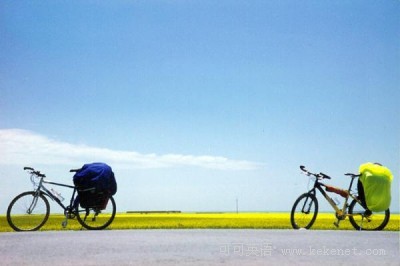徒步旅行者却总是生活在现在。 对他来说,旅行和到达是同一件事情:他是一步一步走着来到某地的。他在用自己的眼睛、耳朵和整个身体体验现在。在他旅途 的终点,他感到一种愉悦的生理疲惫。他知道他会享受深沉而甜 蜜的睡眠:这是对一切真正旅行者的酬报。

True Traveling
The future history books might record that we were deprived of the use of our eyes. In our hurry to get from one place to another, we failed to see anything on the way. Air travel gives you a bird’s-eye view of the world – or even less if the wing of the aircraft happens to get in your way. When you travel by car or train a blurred image of the countryside constantly smears the windows. Car drivers, in particular, are forever obsessed with the urge to go on and on: they never want to stop. Is it the lure of the great motorways, or what? And as for sea travel, it hardly deserves mention. It is perfectly summed up in the words of the old song: ‘I joined the navy to see the world, and what did I see? I saw the sea.’ The typical twentieth-century traveler is the man who always says 'I’ve been there'. You mention the remotest, most evocative place-names in the world and someone is bound to say 'I’ve been there' meaning, 'I drove through it at 100 miles an hour on the way to somewhere else. '
When you travel at high speeds, the present means nothing: you live mainly in the future because you spend most of your time looking forward to arriving at some other place. But actual arrival, when it is achieved, is meaningless. You want to move on again. By traveling like this, you suspend all experience; the present ceases to be a reality: you might just as well be dead. The traveler on foot, on the other hand, lives constantly in the present. For him traveling and arriving are one and the same thing: he arrives somewhere with every step he makes. He experiences the present moment with his eyes, his ears and the whole of his body. At the end of his journey he feels a delicious physical weariness. He knows that sound. Satisfying sleep will be his: the just reward of all true travellers.












